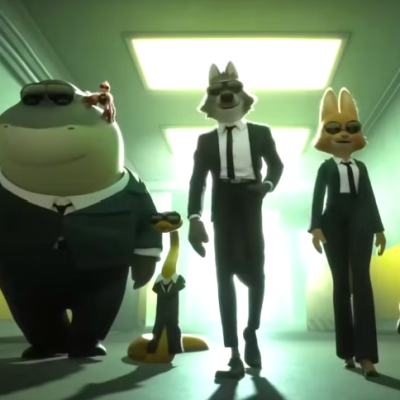Writers in the industry: the silent craftsman of film
As a film enthusiast and writer myself, I’ve noticed the glaring disparities that exist in Hollywood when it comes to the treatment of the forgotten underrated heroes: the writers. The spotlight is often shined on the director and actors rather than the writers, the creative minds responsible for the story. They are time and again left in the shadows both monetarily and in terms of recognition. This sad reality highlights an important issue in the industry that needs urgent attention and correction.
According to Indeed, screenwriters get 2-3% of the movie/project budget. Which, for big production movies/projects may be a lot, but for smaller writers starting their careers., it’s tough. A report published by the Writers Guild of America (WGA) in 2021 stated that the average annual income of screenwriters is only a fraction of that of actors and directors. While A-list actors and directors enjoy their million-dollar salaries, many talented writers struggle to make a decent living for themselves, this stress and instability grows to show in their work as well. But why are their cuts so low compared to actors and directors? Most writers received fixed wages for their work. Meaning that the amount that they are paid will never change regardless if the movie does well or not so well. Contracts that allow writers to make more from whatever they get based on their movie’s success are very rare and not the norm. The WGA has been advocating for change for years, but these calls have made little change. This disparity promotes an already skewed power dynamic in the industry, where writers often play the role of “vigilantes” rather than being recognized as visionary artists who, in this context, shape the movie. They are the blueprint, the most essential part of any project. According to LetterReview, maintaining/having lucrative careers is difficult, most of them are unable to find stable employment or ways to boost their careers. So instead of taking time to perfect their craft/writing, they are often consumed by their troubling employment situation. While of course A-list actors and directors are chilling in Dubai.
When you pay attention, its pretty easy to see who they favor. Award shows, like the Oscars, repeatedly prioritize actors and directors, often giving them most of the screen time and giving awards to writers/others towards the end. And recently in 2022, the Oscars removed eight categories from the live telecast. This act shows that these big film institutions aren’t afraid of undermining the work of others for their benefit, specifically those who work on shorter projects.. Who is to say writing may not be next?
The lack of representation in the writer’s room has also contributed to many of the issues in the industry. A 2019 report by the Annenberg Inclusion Initiative at USC highlighted the lack of diversity among screenwriters, which makes the whole representation thing worse. The study stated that men took a majority of the positions while women and POC were left unrepresented. This study highlights a divide within the screenwriting space that also needs to be spoken about. By excluding diverse voices, we lose the stories that may reach a wider audience and bring more inclusivity.
There isn’t an easy way to tackle this problem, especially with the WGA strike. Writers have stopped working so therefore nothing can progress. This strike has shown to be not only an act of resistance but also proves that writers are one of the most important people when it comes to projects. Now we’ve realized how big this issue is, why it’s a big deal, and the consequences of ignoring the problem. We must figure out a way to end the matter. But, To solve it, film studios need to prioritize fair wages for all their workers, including writers. Take them more seriously as they are the people who are, as I said before, the blueprint. The importance of fair wages not only shows the writer the worth of their work but also gives them a reason to go far and beyond. Make their work better than it was before. As the famous Scottish economist Adam Smith once said, treat the workers well, and they work harder, so, therefore, you make more money. To add to more fair wages, the addition of more diverse writers would bring a big boost to a wider audience as well as money. This gives minorities a chance to tell their stories and bring in a new perspective on the way we see things. It makes things more exciting and not generic.
At the end of the day, I think it’s important for the industry to acknowledge the work of their writers and make an effort to represent their work with full reparation. They’re the creative backbone to most of the media you consume yet they often remain in the shadows without reward. I think that it’s important that the industry give writers fair wages as well as a range of writers from different backgrounds to work on bigger projects. In the realm of entertainment, let us never forget to honor writers, they’re the storytellers, the raconteurs, that create stories worth displaying on the big screen.









